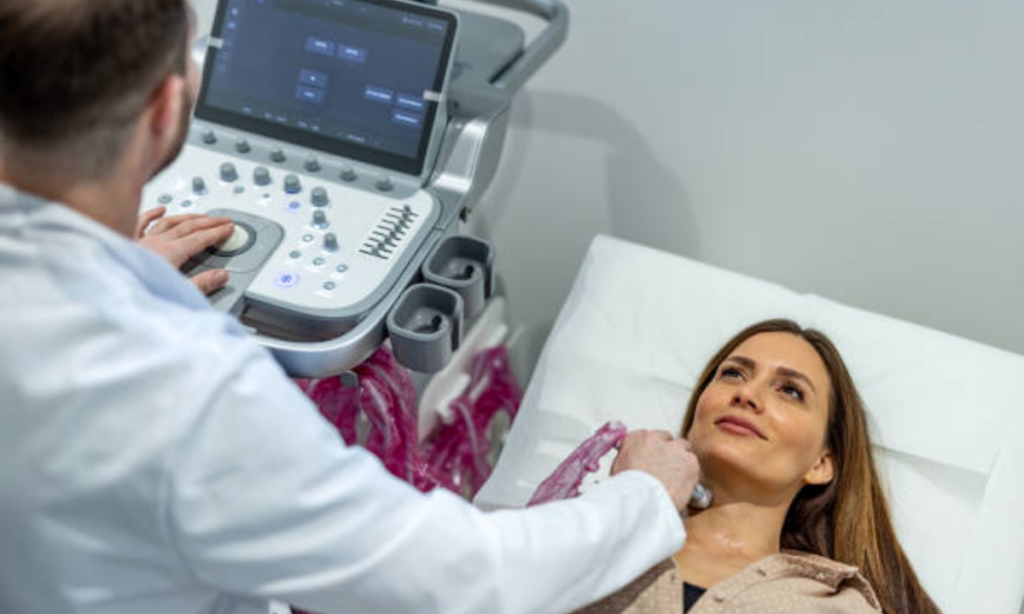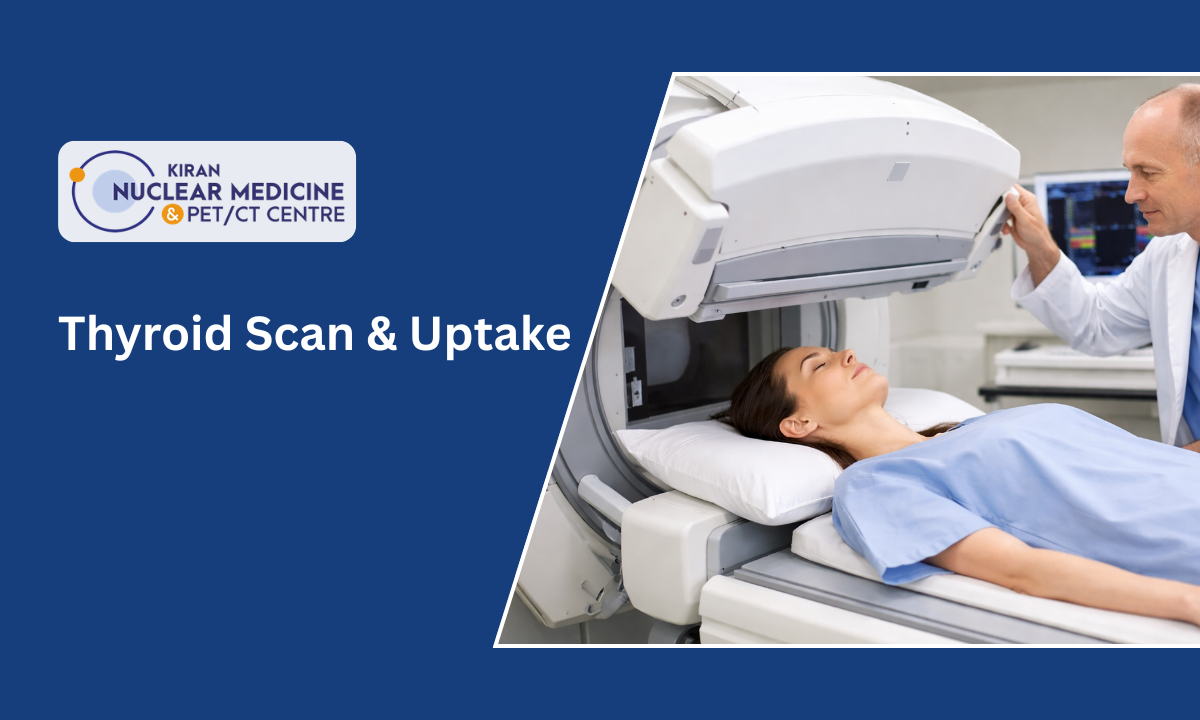The thyroid is one of the most vital glands in the human body, regulating metabolism, growth, and energy balance. Any disruption in its function can impact overall health, often requiring a timely diagnosis through specialized tests. At Kiranpet, advanced diagnostic services, including thyroid test procedures, ensure early detection and effective management of thyroid-related concerns.
This comprehensive guide will help you understand the process and benefits of thyroid imaging tests, why they matter, and how they play a role in identifying conditions like hyperthyroidism, hypothyroidism, and structural abnormalities such as nodules.
Importance of Thyroid Imaging Tests
The thyroid gland controls multiple bodily functions through the release of hormones like T3 and T4. Imbalances in these hormones can cause fatigue, weight changes, mood swings, and metabolic issues. While basic blood tests are usually the first step in assessing thyroid health, imaging tests provide a more detailed view of the gland’s structure and function.
For patients dealing with symptoms that cannot be explained by routine blood work, imaging becomes critical. Imaging helps in the evaluation of thyroid nodules, detecting abnormalities, and planning treatment strategies, whether it involves medication, surgery, or specialized nuclear medicine procedures.
Common Conditions Requiring Thyroid Imaging
Hyperthyroidism
This occurs when the thyroid produces excess hormones. Symptoms may include weight loss, anxiety, tremors, and an increased heart rate. Imaging tests assist in identifying the cause, whether it is Graves’ disease, toxic nodules, or thyroid inflammation.
Hypothyroidism
An underactive thyroid leads to reduced hormone levels, causing fatigue, depression, dry skin, and sensitivity to cold. While blood tests reveal hormone deficiencies, imaging scans can uncover structural issues contributing to the condition.
Thyroid Nodules
Nodules are growths that form within the thyroid gland. Most nodules are harmless, but some may require further investigation for cancerous changes. Imaging plays a major role in thyroid nodules evaluation, allowing doctors to distinguish between benign and suspicious growths.
Types of Thyroid Imaging Tests
Ultrasound

Thyroid ultrasound is often the first imaging test recommended. It uses sound waves to create pictures of the gland, detecting nodules, cysts, and other abnormalities. It is safe, painless, and provides clear images of gland structure.
Nuclear Medicine Scans
Nuclear medicine offers highly advanced methods for studying thyroid function. A radioactive iodine scan is often used to evaluate how well the thyroid is working. The thyroid naturally absorbs iodine, so by using a small radioactive tracer, doctors can see how actively different parts of the gland are functioning. This test is particularly useful in cases of hyperthyroidism and nodule assessment.
Radioactive Iodine Uptake Test
This test measures how much iodine the thyroid absorbs over a set period. A higher uptake may suggest overactivity, while a lower uptake may indicate underactivity or other thyroid disorders.
Thyroid Scan in Bangalore
At Kiranpet, patients have access to advanced nuclear medicine facilities, making it easier to get a thyroid scan in Bangalore. With skilled specialists and modern imaging tools, accurate diagnosis and treatment planning become more efficient.
The Process of Thyroid Imaging Tests
1. Preparation – Patients may be asked to stop certain medications or avoid specific foods that contain high iodine before undergoing nuclear medicine scans.
2. Administration of Tracer – For nuclear scans, a small dose of radioactive iodine or another tracer is given orally or through injection. The thyroid absorbs it naturally.
3. Imaging – Specialized cameras then capture images of the thyroid, highlighting its structure, shape, and activity.
4. Duration – The orthodontic treatment duration analogy isn’t valid here, but similar to treatment timelines in medical fields, imaging test timeframes vary. An ultrasound may take 20 minutes, while a nuclear medicine scan may require a few hours for tracer absorption and imaging.
5. Post-Scan – Patients usually resume normal activities immediately after the test, with no side effects from imaging procedures.
Benefits of Thyroid Imaging Tests
- Accurate Detection: Imaging tests allow specialists to distinguish between functioning and non-functioning nodules.
- Early Diagnosis: Detecting conditions such as hypothyroidism or hyperthyroidism early prevents further complications.
- Treatment Guidance: Imaging helps doctors decide whether medication, radioactive iodine therapy, or surgery is required.
- Non-invasive Method: Most tests are painless and safe, providing maximum information with minimal discomfort.
- Monitoring Progress: Imaging is not just for diagnosis; it helps track recovery and the effectiveness of ongoing treatments.
Thyroid Normal Range and Its Role in Imaging
Understanding the thyroid normal range is crucial when interpreting imaging results. While blood tests provide hormone levels, imaging scans correlate these findings with gland function. For example, if hormone levels are within range but nodules are detected, imaging becomes a vital tool in long-term monitoring.
Advanced Care at Kiranpet
When it comes to diagnostic precision, Kiranpet stands out for its modern facilities, highly skilled radiologists, and patient-focused approach. Whether it is an ultrasound, a radioactive iodine scan, or a thyroid scan in Bangalore, the centre ensures accuracy and comfort. The integration of nuclear medicine in thyroid care has allowed early interventions, which significantly improve patient outcomes.
Conclusion
Thyroid imaging tests are a cornerstone in identifying and managing thyroid disorders. From detecting nodules to assessing the severity of hyperthyroidism and hypothyroidism, these tests provide clarity that blood work alone cannot. With facilities like Kiranpet, patients gain access to advanced diagnostic methods, including nuclear medicine techniques such as the radioactive iodine scan and thyroid scan in Bangalore. Understanding your thyroid test results, the thyroid normal range, and the role of imaging ensures better treatment planning and long-term health management.




